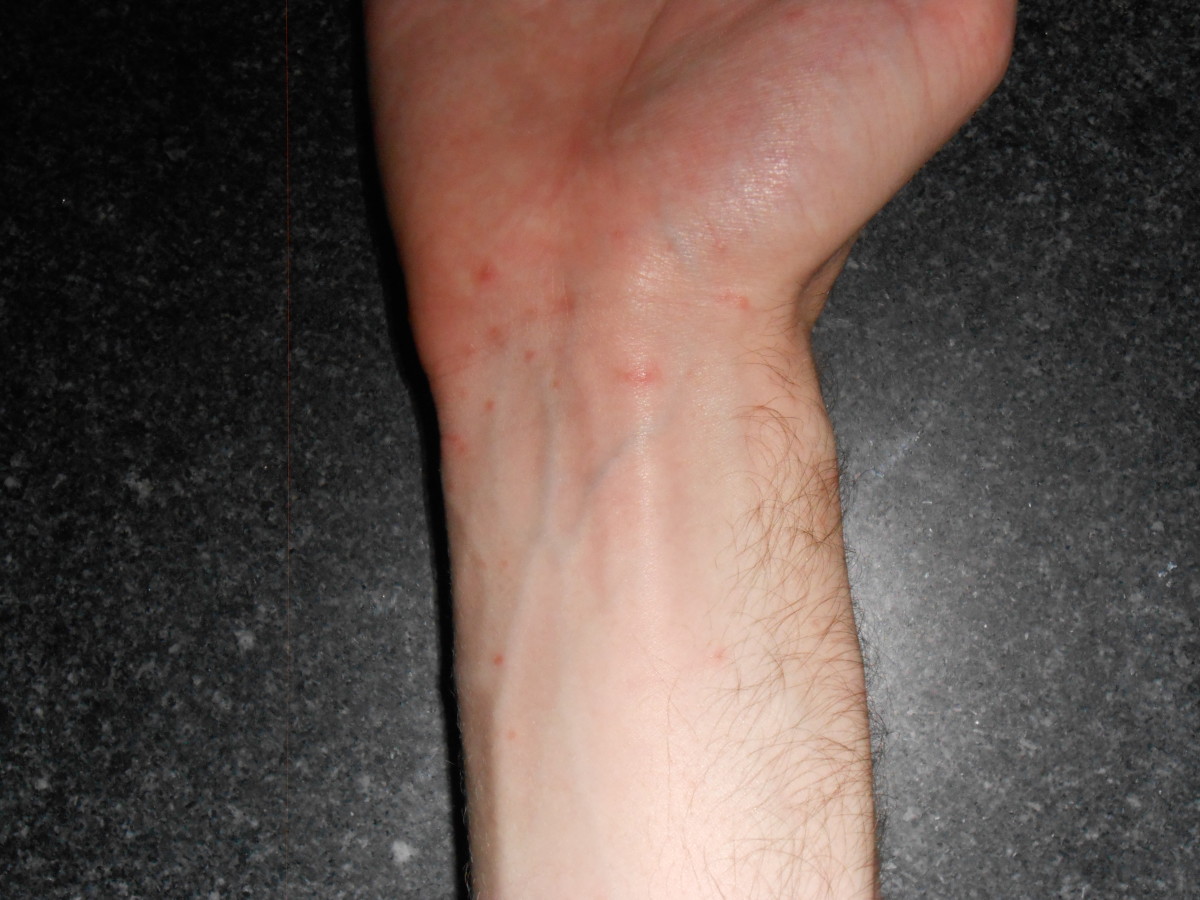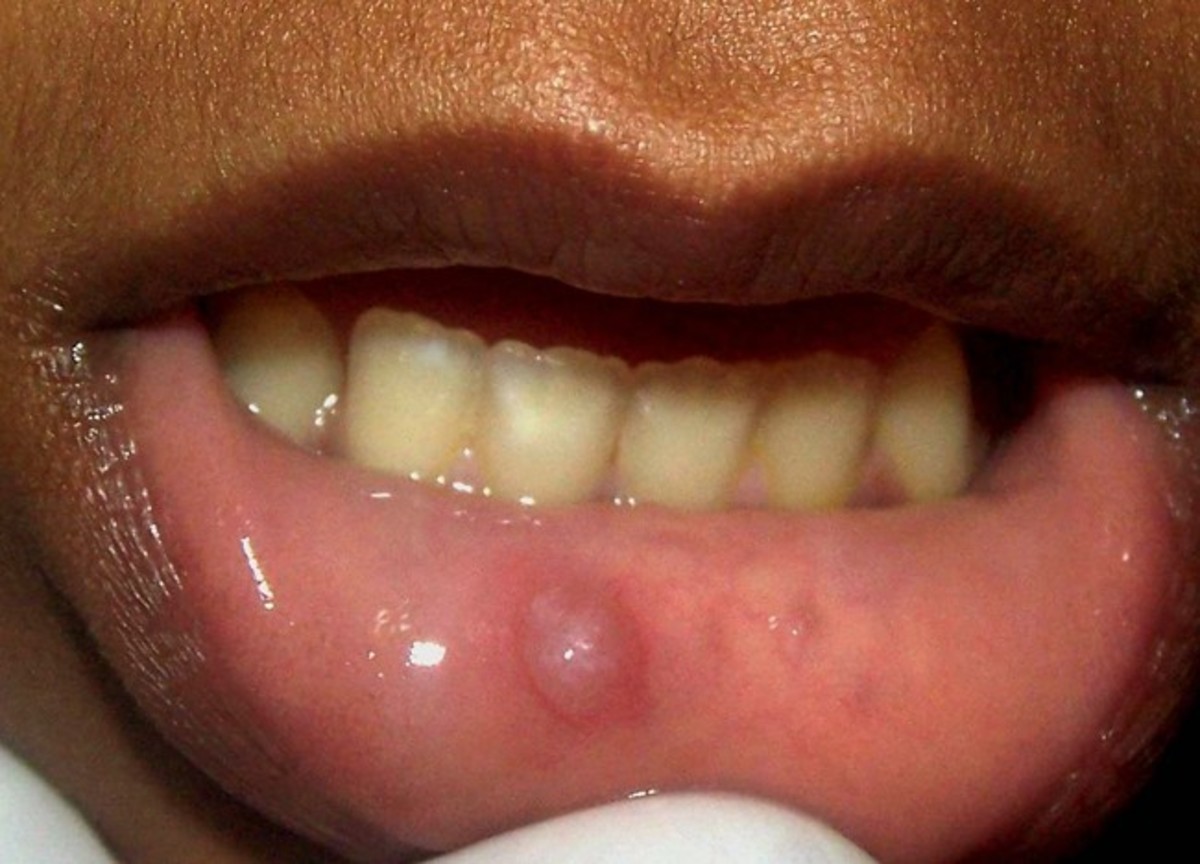How to Get Rid of Acne - Hard vs. Soft Water
An Introduction
Millions of people in the United States presently suffer from acne. Acne in a skin condition prevalent among the younger populace that typically manifests itself in the form of inflamed bumps on the facial area. There are a number of over-the-counter products that have been designed to aid in the fight against acne. Despite this, many fail to garner relief and are subsequently forced to visit a dermatologist for prescription-grade medication. In most cases, neither prescription-grade medicine nor OTC products provide a long-term escape from the condition. As such, a more thoughtful approach to dealing with this skin nightmare should entail finding the root cause of the problem.
There is overwhelming amounts of concrete evidence that acne is linked to hormonal fluctuations among a plethora of other things. However, it seems as though the most rudimentary factors have been completely ignored in uncovering the cause of acne in cases where concrete facts shed little insight. Case-in-point: water quality. Water is a substance that makes contact with our skin on a regular basis. Could it not perhaps be possible that our home's water supply aggravates, or even causes or acne? This question will be thoroughly explored in this hub.
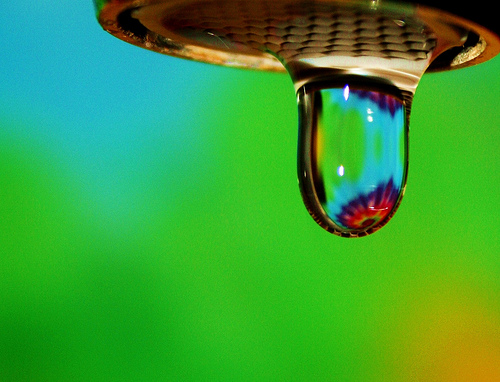
Hard Water
Hard water is a term used to describe water with a high mineral content. It is estimated that over eighty percent of American homes are outfitted to receive such water. The most prevalent minerals in this type of water are Calcium and Magnesium. Hard water presents a number of challenges in maintaining healthy skin. The significant mineral content, for one, degrades water's ability to act as an effective solvent in removing soap from the skin. Have you ever wondered why you have trouble lathering soap in the shower? On a basic level, the soap reacts with the minerals in the water to form soap scum, instead of suds. The soap, instead of helping remove dirt and grime from your skin, creates a nice layer atop it instead. This soap scum also accumulates on your bathroom doors and fixtures.
As most of us know, soap induces a drying effect. Naturally, the longer you allow it to linger on the skin, the more it will dry it out. Hard water allows for just this. The soap scum dries the skin out nicely, aggravating it. Irritated skin is a major risk factor for acne. The unrinsed soap scum can also make its way into your pores, eventually causing breakouts. This effect is aided by taking warm showers, which open your pores.
If hard water is so damaging, why is it that we continue to use it? Hard water is not as corrosive to plumbing as is soft water. However, in exchange, homeowners are left to deal with mineral deposits, which can be just as damaging. These deposits can accumulate in piping causing a wide array of issues.
There may be ultimately a financial motive in maintaining a hard water supply. Distilling water can be an expensive and laborious process. As long as people are unaware of the potentially harmful effects of hard water, there is little reason to tamper with it. However, there is strong indication that hard water is ill-fit for skin care.
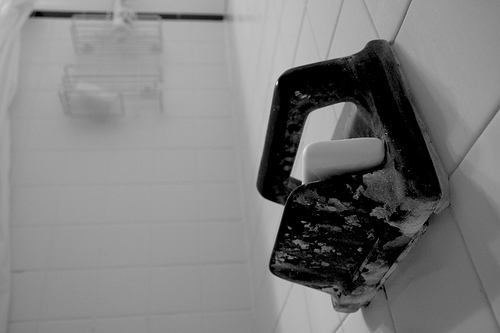
Soft Water
Soft water is pure water with a negligible mineral content. The Calcium and Magnesium is replaced with Sodium. Soft water is a much more effective solvent than its hard counterpart. When combined with soap, this water does not form soap scum. Rather, it lathers soap in preparation for a thorough cleaning. Most of us have fallen so accustomed to using hard water that transitioning to soft water feels strange and foreign. Many report a "slippery" sensation after having bathed in such water. This is because soft water aids soap in cleaning your skin, and helps remove that existing layer of soap scum off your skin.
If you're not convinced, you can experiment by purchasing a container of very soft water (distilled water). You will notice an immense difference in the way distilled water interacts with soap to clean your hands as opposed to hard water. You skin will feel cleaner, softer, and healthier.
Soft Water Cleaning Power
Damaging Effects of Hard Water
Treating Your Water
There are several routes you can take in mitigating some (or all) of the negative effects associated with hard water usage. For one, you can get a water softener installed in your home. This can be an expensive investment, however, a very worthwhile one. You will exert less effort in ensuring that soaps and detergents do their job on your skin, dishes, and clothing. How do dishes without disfiguring etching sound? Dealing with mineral deposits and soap scum and bathroom fixtures and such will also be an issue of the past.
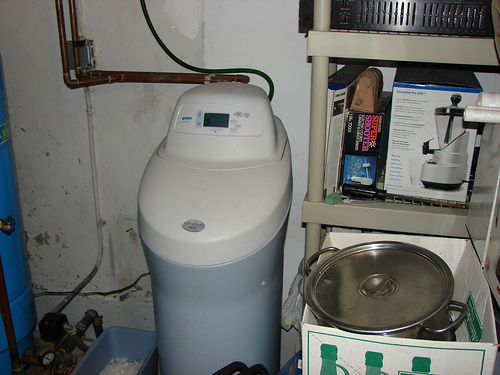
Cost Effective Solutions
Not all of us can afford to outfit our homes with water treatment devices. Fortunately, there are some more cost-effective steps you can take to combat the destructive effects of hard water. Have your bathroom fixtures cleaned or replaced regularly as to prevent even more mineral deposits from making their way into your water.
Limit the time that you allow water to stream down your face in the shower. Also, clean your face with only cool or warm water. Hot water will open your pores and give the minerals an opportunity to clog them. This doesn't mean you have to take a cold shower. Simply use warm water while bathing your body, and change to cooler water for cleaning your face.
If you don't mind a bit of inconvenience, you should purchase soft water (distilled water) from your local supermarket and use that to cleanse your face. This should remain sealed while not in use to prevent its acidity from rising.
Finally, if you have not already done so, incorporate a moisturizer in your skin care regimen. Hard water can be drying, yet a quality moisturizer can fix this. Remember that other chemicals such as chlorine are also present in the public water supply. These can contribute to the drying effect. So a moisturizer is definitely a must!

